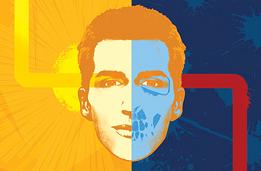Global Research, March 4, 2010 | ||||
Why do political leaders seem to be lying most of the time?
Indeed, when the stench of moral decay becomes overwhelming, bad things inevitably follow. Historically, it can be shown that when the moral environment in a society is deteriorating, problems tend to pile up.
We are presently living in one of those times, characterized by deep and entrenched political corruption, by routine abuse of power and disregard for the rule of law in high places, and by unchecked greed, fraud and deception in the economic sphere. The results are all there to see: Severe and prolonged economic and financial crises, rising social inequalities and social injustice, increasing intolerance toward individual choices, the disregard for environmental decay, the rise of religious absolutism, a return to whimsical wars of aggression (or of pre-emptive wars), to blind terrorism and to the repugnant use of torture, and even to genocide and to blatant war crimes. These are all indicators that our civilization has lost its moral compass.
With all these throwbacks to an unpalatable past, it is not surprising there is a resurgence of interest nowadays for questions of morality and of ethics.
The contradiction between modern problems, new scientific knowledge and the inadequacy of our prevalent source of morality or of ethics, which are mainly religion-based, has led a humanist like me to write a book, “The Code for GLOBAL ETHICS, Ten Humanist Principles”, [ISBN: 978-1616141721] prefaced by Dr. Paul Kurtz and published this year by Prometheus Books. The book is a down-to-earth discussion of ten basic humanist principles for our new global context.
Why such a renewed interest in the moral dimension of things? —First, partly because many of our problems and threats are not only severe but they have also become global in nature. —Second, the fact that we seem to be unable to solve our global problems might also be because our scientific and technological progress is advancing much faster than our moral progress, with the consequence that problems arise faster than our moral ability to face them and to solve them. —And third, this is also partly due to the fact that the old religion-based rules of morality are of little help in solving these new problems, basically because they belong to the past and because, unfortunately, they have not incorporated new scientific knowledge.
Indeed, humans' vision of themselves in the Universe has been forever altered by three fundamental scientific breakthroughs:
I would add, also, that ongoing research about how the human brain functions has cast new light on how some phenomena, such as different thoughts, including religious thoughts, are generated in different zones of the brain.
Therefore, nobody can claim anymore that the Earth is the center of the Universe; nobody can claim that humans are unique in the scale of things; and nobody can claim that the human body and the human mind are two unrelated entities. This knowledge has tremendous consequences for our moral stance.
My best hope is that we will avoid falling back into an age of obscurantism and of decadence, and that we will be able to build a truly humanist civilization for the future.
Rodrigue Tremblay is professor emeritus of economics at the University of Montreal and can be reached atrodrigue.tremblay@yahoo.com. He is the author of the coming book "The Code for Global Ethics" at:www.TheCodeForGlobalEthics.com/ You can reserve a copy of the book on Amazon. The French version of the book is now available. See: www.lecodepouruneethiqueglobale.com/ or on Amazon.
| |
Rodrigue Tremblay is a frequent contributor to Global Research. Global Research Articles by Rodrigue Tremblay | |






















